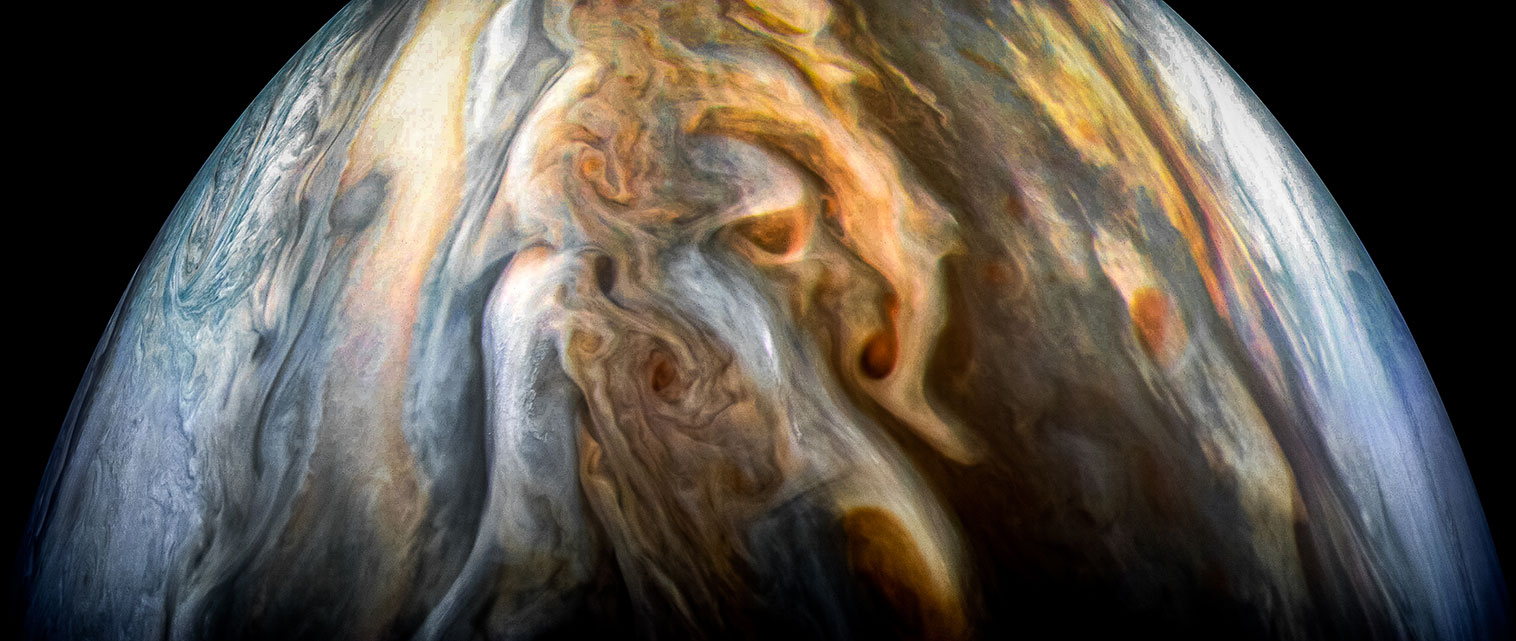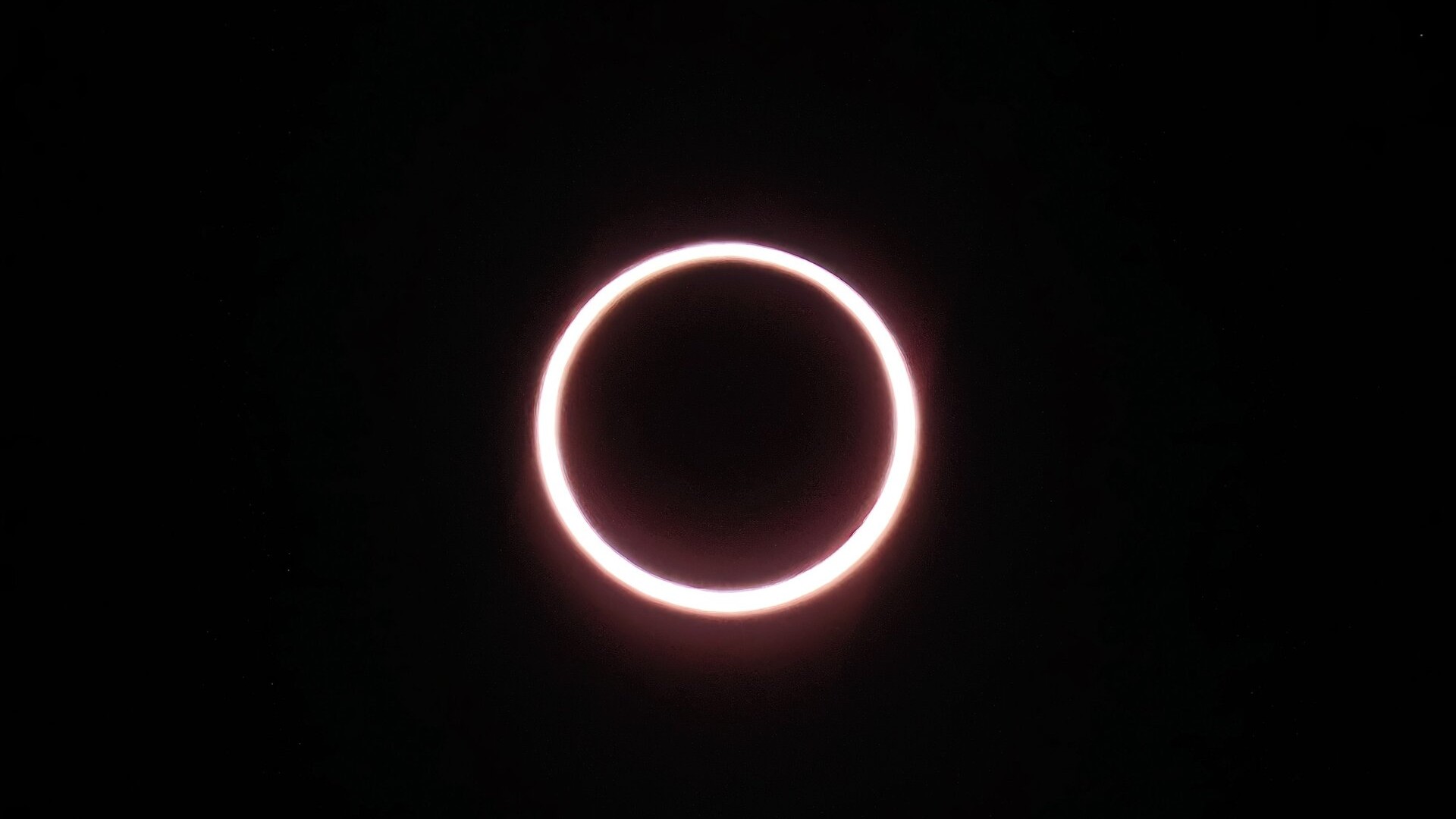Surprise! There's more water on Jupiter than anyone thought

Breaking space news, the latest updates on rocket launches, skywatching events and more!
You are now subscribed
Your newsletter sign-up was successful
Want to add more newsletters?
Jupiter appears to have more water than anyone expected.
Newly released data from NASA's Juno probe shows that water may make up about 0.25% of the molecules in the atmosphere over Jupiter's equator. While that doesn't sound like much, the calculation is based on a prevalence of water's components, hydrogen and oxygen, three times more than at the sun. The new measurements Juno obtained are much higher than a previous mission suggested.
The surprise result has scientists delving deep again into results from NASA's Galileo mission to Jupiter, which obtained drier results in 1995 when engineers deliberately threw the spacecraft into Jupiter's atmosphere. (Galileo was low on fuel and NASA didn't want to take the chance, even if it was a slight one, of the spacecraft accidentally crashing on a potentially habitable icy moon.)
Related: NASA's Juno mission checks out epic Io eclipse on Jupiter
Reconciling the results from Galileo and Juno is key for scientists to better understand how our solar system came together, NASA said in a statement. Since Jupiter was probably the first planet to form, it could have sucked up most of the gas and dust that the sun's formation left behind. How much water Jupiter soaked up, then, should help scientists identify the most plausible theories to explain its formation.
And understanding Jupiter's birth would in turn help scientists understand how the planet's wind currents move and what its insides are made of. Scientists should be able to generalize findings at Jupiter to certain kinds of large exoplanets to learn how other solar systems formed.
Galileo's results were a puzzle even back in the 1990s. The spacecraft sent back data showing 10 times less water than scientists predicted, and more weirdly, the amount of water appeared to increase the deeper Galileo went into Jupiter's atmosphere, according to the NASA statement. Scientists had expected that by the time it stopped transmitting data, at a depth of about 75 miles (120 kilometers), the atmosphere around it should have been well-mixed with an unchanging composition.
Breaking space news, the latest updates on rocket launches, skywatching events and more!
A ground-based infrared telescope was able to measure water concentrations at Jupiter at the same time as Galileo's plunge and showed that Galileo may have accidentally hit a dry spot, meaning water is not well-mixed deep in Jupiter's atmosphere.
Juno's first eight flybys also showed a lack of atmospheric mixing. The spacecraft's radiometer obtained data even deeper than Galileo's measurements, at 93 miles (150 km) down, and found more water at the equator than Galileo did.
Scientists are now waiting to compare Juno's equatorial measurements with observations at the north of the planet; Juno's 53-day orbit is gradually moving northward to examine more of that hemisphere with each flyby. The spacecraft's next science flyby will be on April 10.
"Just when we think we have things figured out, Jupiter reminds us how much we still have to learn," Scott Bolton, Juno principal investigator at the Southwest Research Institute, said in the NASA statement. "Juno's surprise discovery that the atmosphere was not well mixed even well below the cloud tops is a puzzle that we are still trying to figure out. No one would have guessed that water might be so variable across the planet."
The new research is described in a paper published Feb. 10 in the journal Nature Astronomy.
- Photos: Jupiter, the solar system's largest planet
- In photos: Juno's amazing views of Jupiter
- Incredible NASA photos show Jupiter's marbled atmosphere
Follow Elizabeth Howell on Twitter @howellspace. Follow us on Twitter @Spacedotcom and on Facebook.
OFFER: Save at least 56% with our latest magazine deal!
All About Space magazine takes you on an awe-inspiring journey through our solar system and beyond, from the amazing technology and spacecraft that enables humanity to venture into orbit, to the complexities of space science.

Elizabeth Howell (she/her), Ph.D., was a staff writer in the spaceflight channel between 2022 and 2024 specializing in Canadian space news. She was contributing writer for Space.com for 10 years from 2012 to 2024. Elizabeth's reporting includes multiple exclusives with the White House, leading world coverage about a lost-and-found space tomato on the International Space Station, witnessing five human spaceflight launches on two continents, flying parabolic, working inside a spacesuit, and participating in a simulated Mars mission. Her latest book, "Why Am I Taller?" (ECW Press, 2022) is co-written with astronaut Dave Williams.

